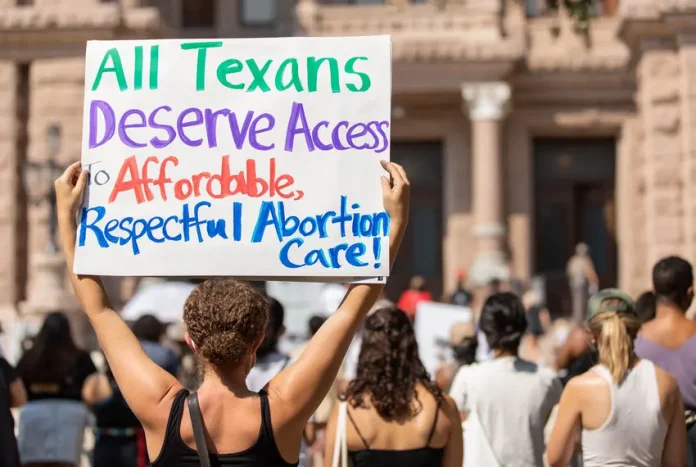TOPLINE: Texas became the third state Monday to have a statewide abortion ban blocked in state court despite the U.S. Supreme Court overturning Roe v. Wade, as abortion providers file a string of lawsuits aiming to block state-level abortion bans that took effect following the court’s decision.
KEY FACTS:
A state judge in Texas issued a temporary restraining order that blocks the state’s pre-Roe abortion ban from staying in effect, according to the abortion providers that filed the lawsuit, after Texas Attorney General Ken Paxton issued guidance on Friday saying abortion providers could now be held criminally liable under the law.
That block is still fairly limited, though: Abortions in Texas after approximately six weeks are already banned under a separate law that’s been in place since September, and the state has a trigger law in place that’s set to take effect in a few weeks, which will make the pre-Roe ban irrelevant whether or not it’s blocked in court.
Louisiana became the first state to have its abortion trigger laws blocked earlier on Monday—at least until a hearing on July 8—after abortion providers sued arguing the bans were unlawfully vague.
Utah’s law banning all abortions, which took effect Friday, will be blocked for two weeks as the case moves forward, a state judge ruled Monday.
Abortion providers have also filed lawsuits targeting trigger bans in Kentucky, Idaho and Mississippi—whose trigger ban still won’t take effect for a few more days—and those lawsuits remain pending.
CONTRA
While state courts are increasingly blocking abortion bans, federal courts are allowing other states’ bans to take effect. Federal judges in South Carolina, Ohio and Alabama have so far allowed state-level bans on the procedure to be reinstated, after previously blocking them when Roe v. Wade was still the law of the land and abortion was legal on the federal level.
TANGENT
A state judge in Florida is also weighing that state’s 15-week abortion ban in court this week, which was enacted prior to the Supreme Court’s decision and is set to take effect July 1 absent court intervention. Republicans in the state passed the law despite the fact the Florida Supreme Court has upheld abortion rights in the state Constitution, and abortion rights advocates fear the state court will overturn that precedent and give the state license to ban abortion.
CHIEF CRITIC
State officials whose laws are being challenged have stood by their abortion bans. “We are fully prepared to defend these laws in our state courts, just as we have in our federal courts,” Louisiana Attorney General Jeff Landry said in a statement Monday, accusing the abortion providers of using “scare tactics,” and Utah AG Sean Reyes told the Salt Lake Tribune Monday before the abortion law was blocked that his office “will do its duty to defend the state law against any and all potential legal challenges.”
KEY BACKGROUND
The U.S. Supreme Court overturned Roe v. Wade on Friday, giving states license to fully ban the procedure as justices declared the landmark 1973 decision “egregiously wrong.” The court’s ruling triggered 13 states’ abortion bans—many of which have now taken effect, though some won’t for a few weeks after the decision—and the pro-abortion Guttmacher Institute projects 26 states will ultimately ban or severely restrict the procedure.
READ ALSO: Iran, UN, Others criticizes human right violations in US
While abortion is now able to be outlawed under federal law, abortion providers are targeting the bans in state courts, arguing that even if the U.S. Constitution doesn’t protect abortion rights, they are still protected under state Constitutions and thus can’t be banned despite the U.S. Supreme Court’s ruling.
SURPRISING FACT
While most state lawsuits have argued the abortion trigger bans violate state Constitutions and the civil rights they provide for, Louisiana abortion providers had to instead only argue the state’s laws are unlawfully vague because they can’t make other arguments under the state Constitution. Louisiana voters approved a ballot measure in 2020 stating, “Nothing in this constitution shall be construed to secure or protect a right to abortion or require the funding of abortion”—one of four states whose constitutions explicitly do not protect abortion rights, along with Alabama, Tennessee and West Virginia.













